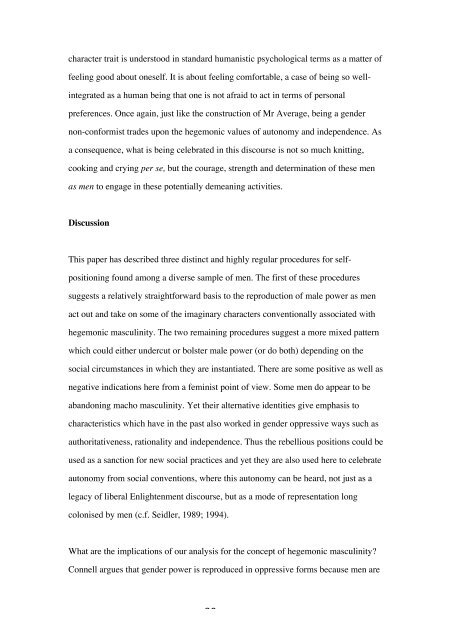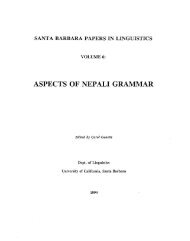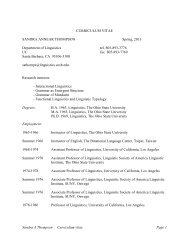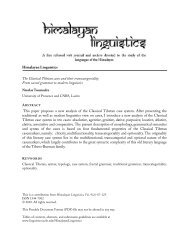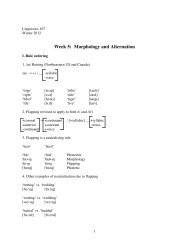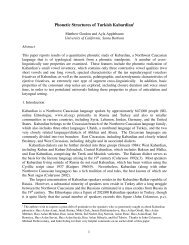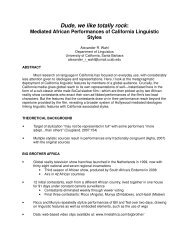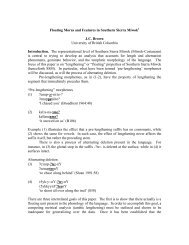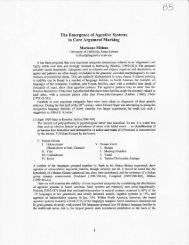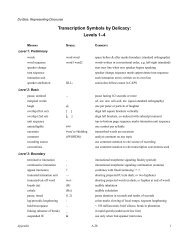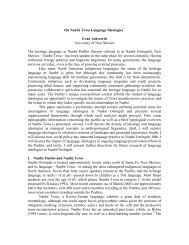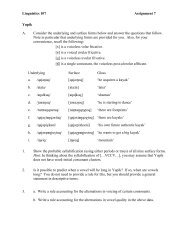Negotiating Hegemonic Masculinity: Imaginary ... - UCSB Linguistics
Negotiating Hegemonic Masculinity: Imaginary ... - UCSB Linguistics
Negotiating Hegemonic Masculinity: Imaginary ... - UCSB Linguistics
You also want an ePaper? Increase the reach of your titles
YUMPU automatically turns print PDFs into web optimized ePapers that Google loves.
character trait is understood in standard humanistic psychological terms as a matter of<br />
feeling good about oneself. It is about feeling comfortable, a case of being so well-<br />
integrated as a human being that one is not afraid to act in terms of personal<br />
preferences. Once again, just like the construction of Mr Average, being a gender<br />
non-conformist trades upon the hegemonic values of autonomy and independence. As<br />
a consequence, what is being celebrated in this discourse is not so much knitting,<br />
cooking and crying per se, but the courage, strength and determination of these men<br />
as men to engage in these potentially demeaning activities.<br />
Discussion<br />
This paper has described three distinct and highly regular procedures for self-<br />
positioning found among a diverse sample of men. The first of these procedures<br />
suggests a relatively straightforward basis to the reproduction of male power as men<br />
act out and take on some of the imaginary characters conventionally associated with<br />
hegemonic masculinity. The two remaining procedures suggest a more mixed pattern<br />
which could either undercut or bolster male power (or do both) depending on the<br />
social circumstances in which they are instantiated. There are some positive as well as<br />
negative indications here from a feminist point of view. Some men do appear to be<br />
abandoning macho masculinity. Yet their alternative identities give emphasis to<br />
characteristics which have in the past also worked in gender oppressive ways such as<br />
authoritativeness, rationality and independence. Thus the rebellious positions could be<br />
used as a sanction for new social practices and yet they are also used here to celebrate<br />
autonomy from social conventions, where this autonomy can be heard, not just as a<br />
legacy of liberal Enlightenment discourse, but as a mode of representation long<br />
colonised by men (c.f. Seidler, 1989; 1994).<br />
What are the implications of our analysis for the concept of hegemonic masculinity?<br />
Connell argues that gender power is reproduced in oppressive forms because men are<br />
28


